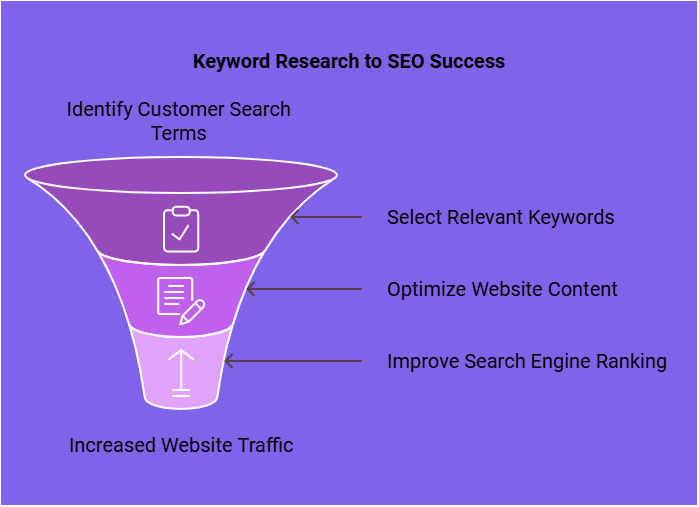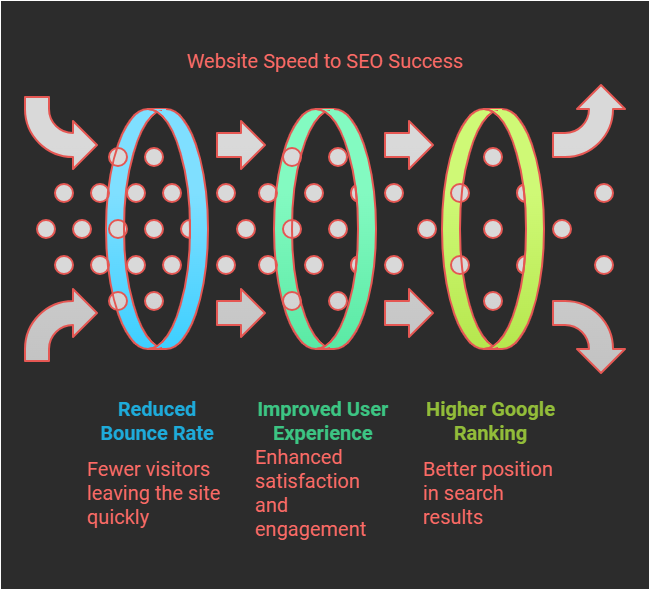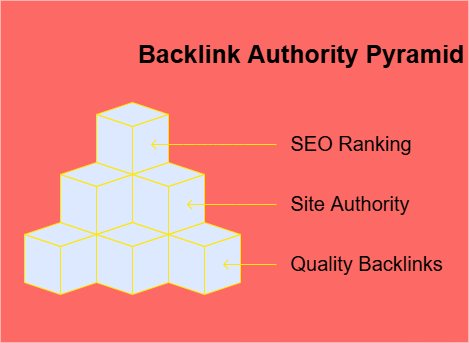A strong online presence is critical for small businesses in the digital age. But, WordPress SEO for Small Business is one of the most productive tools.
Search engine optimization (SEO) will help your business rank better on search engines such as Google, attracting more people to your site and making you more visible. Small businesses do face challenges in effectively optimizing their WordPress websites.
In this guide, we will show you how to solve the problem of WordPress SEO for Small Business with smart little methods that you can apply to your WordPress site and rank higher.
The Importance of WordPress SEO for Small Business
Presentation is wanted other than clarifying the significance: why WordPress SEO for Small Business is even basic. WordPress is the most used CMS, used by more than 40% of all websites. It’s versatile, easy to use, and well-suited for small business owners who don’t have a lot of technical knowledge.
But having a WordPress site alone won’t cut it. To make sure that your website can be found by potential customers, you must adapt WordPress SEO for Small Business. If done correctly, it can help small businesses:
- Enhance Search Engine Visibility
- Drive more organic traffic
- Establish authority and trust in your brand
- Attract targeted customers
- Boost conversions and sales
Let’s go over the strategies to fix your WordPress SEO for Small Business and the reasons why you want to implement this now.
Do In-Depth Keyword Research
Keyword research is the bedrock of any successful WordPress SEO for Small Business strategy. What are Keywords Keywords are the phrases and terms that potential customers use to search for your products and services. By choosing the right keywords, you can then optimize your site around those keywords and rank better on search engines.

Keyword Research for Small Businesses — A How-to Guide
- Create plot lines: Outline your main plot lines for your products or services. Consider how they would describe themselves if they were customers.
- Use keyword research tools: Tools such as Google Keyword Planner, SEMrush, or Ahrefs can aid in identifying related keywords that have decent search volumes and low competition.
- Use long-tail keywords: Focus on long-tail keywords (e.g. three or more words long) that are highly relevant to the content. Instead of keywords like “digital marketing,” try “affordable digital marketing services for small business.”
- Competitor research: Investigate the websites of your competitors to see what keywords they’re using.
- Through keyword targeting, you can align your WordPress SEO for Small Business strategy to reach your desired consumers.
Optimize On-Page SEO Elements
On-page refers to everything you can manage within your website, including titles, meta descriptions, headings, and content. Because they help search engines understand your content and improve user experience, these elements are paramount to WordPress SEO for Small Business.
Key On-Page SEO Elements:
- Title Tags: Ensure your title tags contain your primary target keyword (i.e., “Best … Small Business SEO WordPress Services”).
- Meta Descriptions: Create short meta descriptions that use the keyword “WordPress SEO for Small Business” and describe the value of your page.
- H1, H2, H3: Use keywords in headings to structure the content. For example, if your blog is about your online business, use H1 for the main title, and use H2/H3 for subheadings.
- Craft clear, concise, short, keyword-rich URLs. For example, use “your domain. com/wordpress-seo-small-business” instead of “your domain. com/page1.”
- Image Alt Text: Describe specifically what all images on your site contain. This benefits accessibility as well as SEO.
SEO on-page helps search engines index your content efficiently when you optimize these on-page elements for higher positions in SERP for relevant searches.
Improve Website Loading Speed
A fast website loading speed is essential to WordPress SEO for Small Business. You probably won’t make it to your website if it loads too slowly, increasing the bounce rate. So, loading speed is also a ranking factor for Google, so, fast websites rank better.

How to Speed Up Your Website: Tips
- Install a caching plugin: Caching plugins such as W3 Total Cache or WP Rocket effectively speed up a WordPress site by caching static files and minimizing server load.
- Compress images: Use image compression techniques to reduce the file size of images without sacrificing quality. Tools like TinyPNG can help.
- Automate everything, excellent hosting — good hosting is key to a fast website. For the WordPress platform, you can consider managed services like SiteGround or Bluehost.
- Reduce the HTTP requests: Limit the number of elements that must be loaded on each page (images, scripts, etc.)
A faster website loading speed provides users with a better experience, and lower bounce rates, ultimately leading to the better performance of WordPress SEO for small business Websites.
Mobile Optimization is Key
As more people visit websites from mobile, a mobile-friendly website is required for WordPress SEO for Small Business. It means that it mainly uses the mobile version of your website for the ranking process, and this is called mobile-first indexing.
Tips for Mobile Optimization:
- Choose a responsive WordPress theme: A responsive theme will automatically resize everything to different screen sizes, providing a consistent experience on mobile.
- Avoid pop-ups: Pop-ups, which obscure content, are the bane of mobile users. Limit their usage or ensure they are mobile-friendly.
- Check mobile usability: Use something like Google’s Mobile-Friendly Test to see how well your site is performing on a mobile device.
- Mobile optimization — not an option for small businesses. It’s an important part of WordPress SEO for Small Business.
Create High-Quality Content
It’s content that is the primary element of WordPress SEO for Small Business. Websites with relevant informative high-quality content rank higher in the search engines. Quality content not only boosts your SEO, it also engages your audience and builds trust!
This content is for Small Business tips only
- Publish blog posts: Post informative blog articles regularly that answer common questions, pain points, and interests of your audience. Use your focus keywords naturally.
- So long-form content performs better (1,500 words+: Detailed information).
- Refresh old content: Keep your old posts up to date and help with SEO performance even for older content.
When you produce content that meets your audience’s needs, you optimize your WordPress SEO for Small Business goals and generate engagement.
Focus on Local SEO
Local SEO is basic for small businesses, especially if they have a physical location. Local SEO helps ensure that when someone searches for “best bakery near me” or “SEO services for small business in [city],” your business appears in the relevant search results.
Local SEO Tips:
- Claim your Google My Business listing: If your business is not already listed on Google My Business, claim it and ensure key information (name, address, phone number [NAP], and business hours) is accurate.
- Upskill with Workbooks: Take relevant free courses that update one’s knowledge.
- Specialist header tags: Add your city or region in your site’s content, meta tags, and titles (e.g., “Best WordPress SEO for Small Business in [City]”)
- Create local backlinks: Get backlinks from local sources, such as newspapers, blogs, and community organizations.
Local SEO is an essential part of WordPress SEO for Small Business, and it is even more important if you are a business that depends on local customers.
Go For A Link-Building Strategy

Backlinks (links to your site from other websites) are among the most important ranking factors for SEO. In simple words, the more quality backlinks you build, the more authoritative your site gets in the eyes of search engines. But backlinking can be tricky, particularly for smaller businesses.
Tips for Building Backlinks:
- Traditional link building: Traditional link building still holds a high value for getting incorporated regularly on other websites. Add a link to your site in the author bio or in the content.
- Influencer Partnerships: Work with influencers or bloggers in your area to obtain backlinks.
- Produce share-worthy content: Publish content like infographics, case studies, or industry reports that others in your sector would want to share and link to.
So, by focusing on link-building you can boost your rankings for WordPress SEO for Small Business.
Constantly Track and Analyze Your SEO Performance
Lastly, it’s important to continuously monitor and analyze your SEO performance to optimize over time. Without adequate monitoring, there’s no way to tell whether your efforts are effective.
Tools for Monitoring SEO:
- Google Analytics — Monitor traffic, user behavior, and other key metrics.
- Google Search Console: Track search performance, indexation problems, and backlinks.
- Tools for SEO: Employ tools such as SEMrush or Ahrefs to assess keyword ranking, backlinks, and the general health of your site.
A regular audit of your WordPress SEO for Small Business performance helps you make adjustments to your strategy so you can retain your success.
Conclusion
The technique for small business improved WordPress SEO is a consistent investment that can pay off eventually at increased traffic, greater rankings, and presented revenues. Implementing these key strategies such as conducting keyword research, optimizing on-page elements, improving website speed, ensuring mobile optimization, creating high-quality content, focusing on local SEO, building backlinks, and monitoring performance will help you fix common SEO issues and will set your WordPress website free.
Keep in mind, that SEO is an ongoing process. Practice these methods constantly, and after a while, your ranked words and online presence will likely be sky-high!
